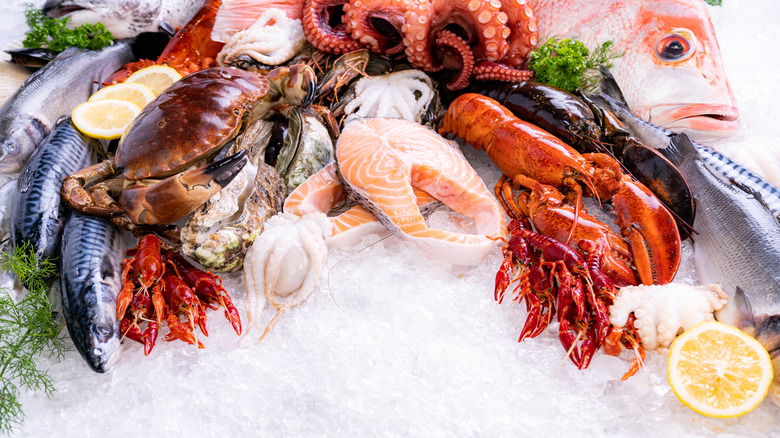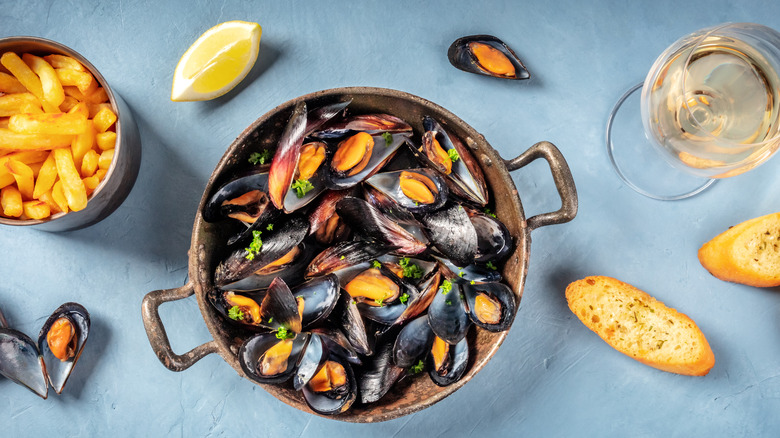The Shellfish You Should Keep Miles Away From The Freezer
Seafood can spoil pretty fast. Unlike the microbes found in land animals that will become paralyzed at lower temperatures (when stored in the fridge), The New York Times explains that fish spoils more quickly due to its cooler dwellings, causing faster decay and oxidation after it's harvested. That said, a variety of seafood is often kept on ice to elongate shelf-life. But, while fresher is always better, there's one shellfish that fares best when it's not frozen.
Seafood is a term that refers to all salt and freshwater finned-fish, crustaceans, and shellfish. That said, Price of Meat reports that shellfish are aquatic invertebrates with a hard shell (exoskeleton), and are known as being filter feeds. They can be further categorized as crustaceans (crab, lobster, crayfish, shrimp) and mollusks (scallop, oyster, clam, mussel). Rich in omega-3 fatty acids, Healthline shares that shellfish tend to be a significant source of iron, zinc, magnesium, and vitamin B12, which can promote brain and heart health.
Despite that the school of thought that the catch of the day is always the best option when buying seafood, sometimes that isn't always possible, hence why seafood is often frozen. However, the same can't be same for shellfish, namely mussels. Whether they meet ice prior to cooking or afterwards, mussels are best kept miles away from the freezer — and here's why.
Freezing causes mussels to become rubbery and bland
It's true that you can find mussels (with or without shells) in the frozen aisle of the supermarket. While they technically can be frozen, for the best quality, it's wise to enjoy the bivalves fresh, rather than resort to freezing them or, worse yet, freezing them after they've already been cooked.
A fresh mussel has a luscious texture and incredibly complex flavor that's faintly sweet with umami nuances of seaweed and mushroom. When shellfish like mussels are frozen, Food & Wine explains that it drastically compromises flavor, but also texture due to their high water content (as they freeze, this causes their cellular structure to burst). The result is a major loss in taste and texture, leading to bland and overly rubbery mussels.
Given that frozen mussels are often partially cooked, the other issue is the risk of overcooking, which is why Blue Ocean Mussels recommends completely thawing and cooking them for a short period of time to prevent the mussels from seizing up and becoming chewy. That said, reheating fully cooked mussels is even more of a challenge as it must be done in an ultra gentle manner, notes LiveStrong.
Remember that next time you whip up a huge batch of coconut curry mussels!

